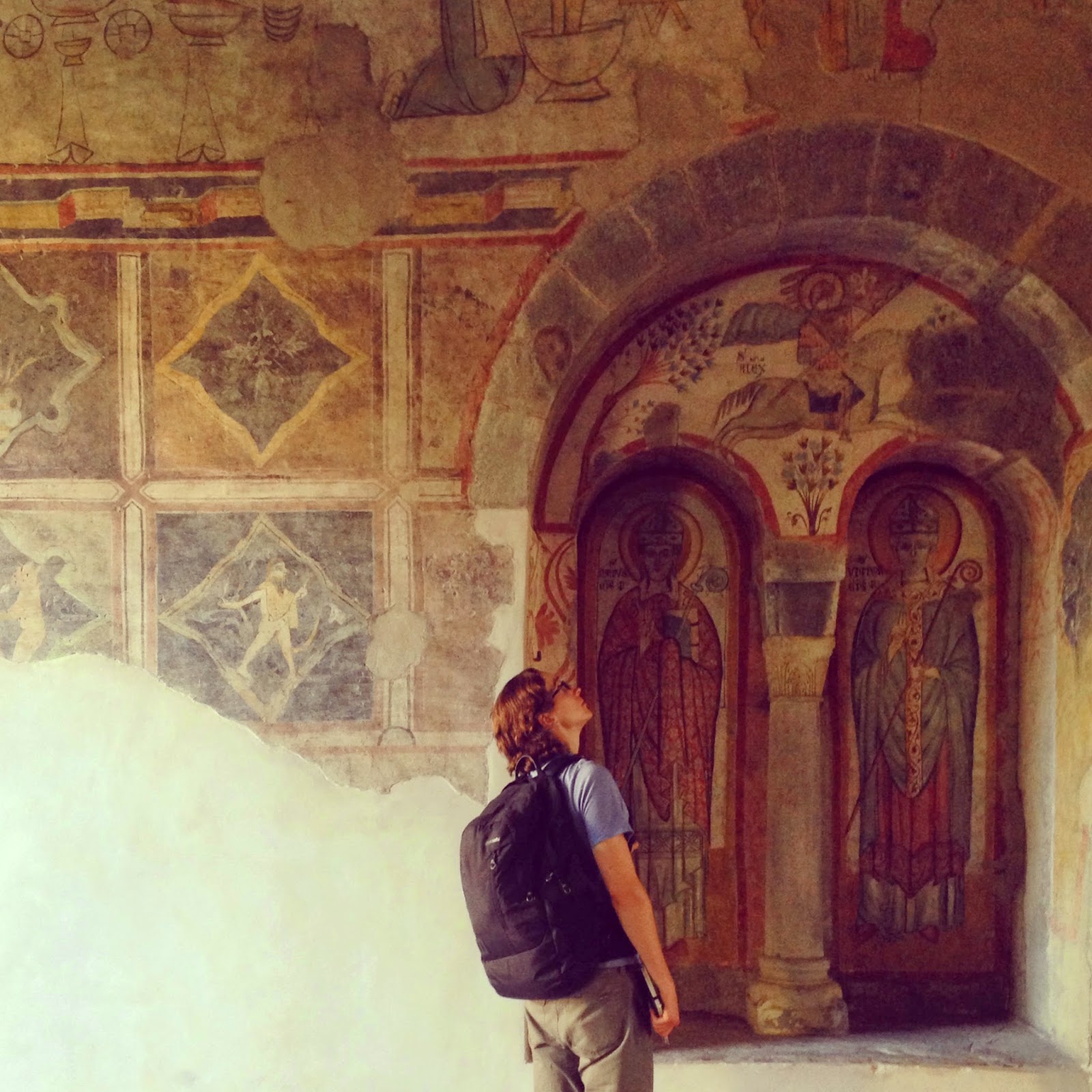 |
| An up close & personal look at the Ionic order, courtesy of one of the six columns supporting the Erechtheion's Northern porch. (Athens, Greece) |
 |
| An unexpected encounter with a room full of 13th Century frescoes in La Città Alta: a truly breathtaking experience. (Bergamo, Italy) |







No comments:
Post a Comment